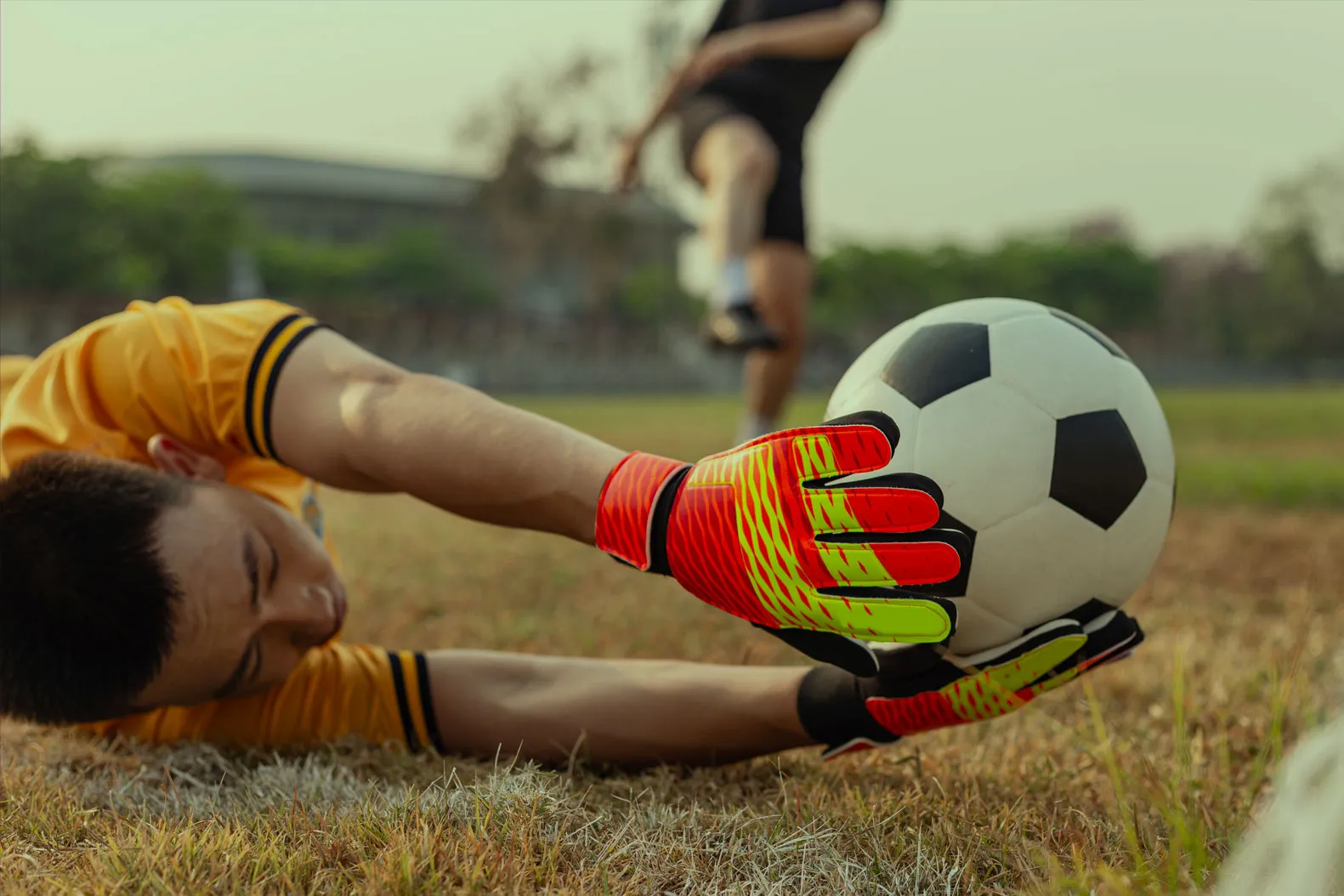
The importance of cardiovascular endurance for soccer goalkeepers
Antoine Roex, Keeper In Motion – 07 November 2024
Find out why cardiovascular endurance is crucial for goalkeepers and how it influences their performance throughout the match. Good stamina not only enables them to remain reactive, but also to make the best decisions, even under pressure.
Cardiovascular endurance: a pillar of goalkeeper performance
Cardiovascular endurance is essential for goalkeepers, enabling them to remain alert and focused throughout the match. Although goalkeepers don’t make the same continuous runs as outfield players, they constantly call on their energy for fast movements, dives and lightning reactions. Good stamina enables goalkeepers to maintain their energy levels, even at the end of a match, helping them to handle critical moments with the same responsiveness and precision. Optimized cardiovascular endurance also reduces the risk of mental fatigue, essential for remaining strategic and lucid in the face of opposing actions.
How endurance supports goalkeeper-specific skills
For a goalkeeper, every move counts: he or she must anticipate shots, constantly adjust his or her position and remain on guard at all times. This demands not only solid physical condition, but also enhanced cardiovascular endurance, which helps maintain regular breathing and rapid recovery between explosive actions. Specific cardiovascular training, including exercises such as high-intensity intervals, improves their ability to repeat short, intense efforts without running out of breath. This targeted endurance translates into consistent performance over time, giving goalkeepers the confidence to respond effectively to all game situations.
The impact of endurance on decision-making under pressure
Good cardiovascular endurance also helps goalkeepers make informed decisions. When a match becomes intense, fatigue can lead to errors in judgment. By cultivating optimal stamina, goalkeepers can keep a calm mind and quickly analyze game situations, even in the final minutes when muscle fatigue takes its toll. A superior level of endurance therefore supports their mental resilience and ability to make crucial decisions with confidence, maintaining concentration and managing stress under pressure.
Optimizing endurance: training methods for goalkeepers
Goalkeepers can build up their endurance through moderate-intensity running sessions, supplemented by high-intensity exercises tailored to the specific requirements of their position. For example, sprinting exercises with short recovery times improve their ability to repeat intense efforts while developing a base of aerobic endurance. Workouts combining strength and cardio, such as strengthening circuits and explosive jumps, help develop the power needed for diving movements, jumps and fast movements over short distances. By integrating these methods, goalkeepers increase their energy efficiency, enabling them to manage their resources throughout the duration of a match, or even extended sessions in the event of penalty shoot-outs.
Conclusion
Cardiovascular endurance is a fundamental element for goalkeepers in soccer, enabling them to combine reactivity, precision and lucidity throughout a match. Although they don’t cover the same distances as outfield players, the intense and explosive efforts required by their role place a high demand on their physical condition. Good stamina guarantees goalkeepers a stable performance, even in moments of maximum pressure, and helps them to make strategic decisions unaffected by fatigue. By training specifically to develop this endurance, they optimize not only their physical capabilities, but also their mental resilience, essential for excelling in critical situations. In this way, cardiovascular endurance becomes an invaluable asset for a goalkeeper who performs with confidence right up to the final whistle.
References :
